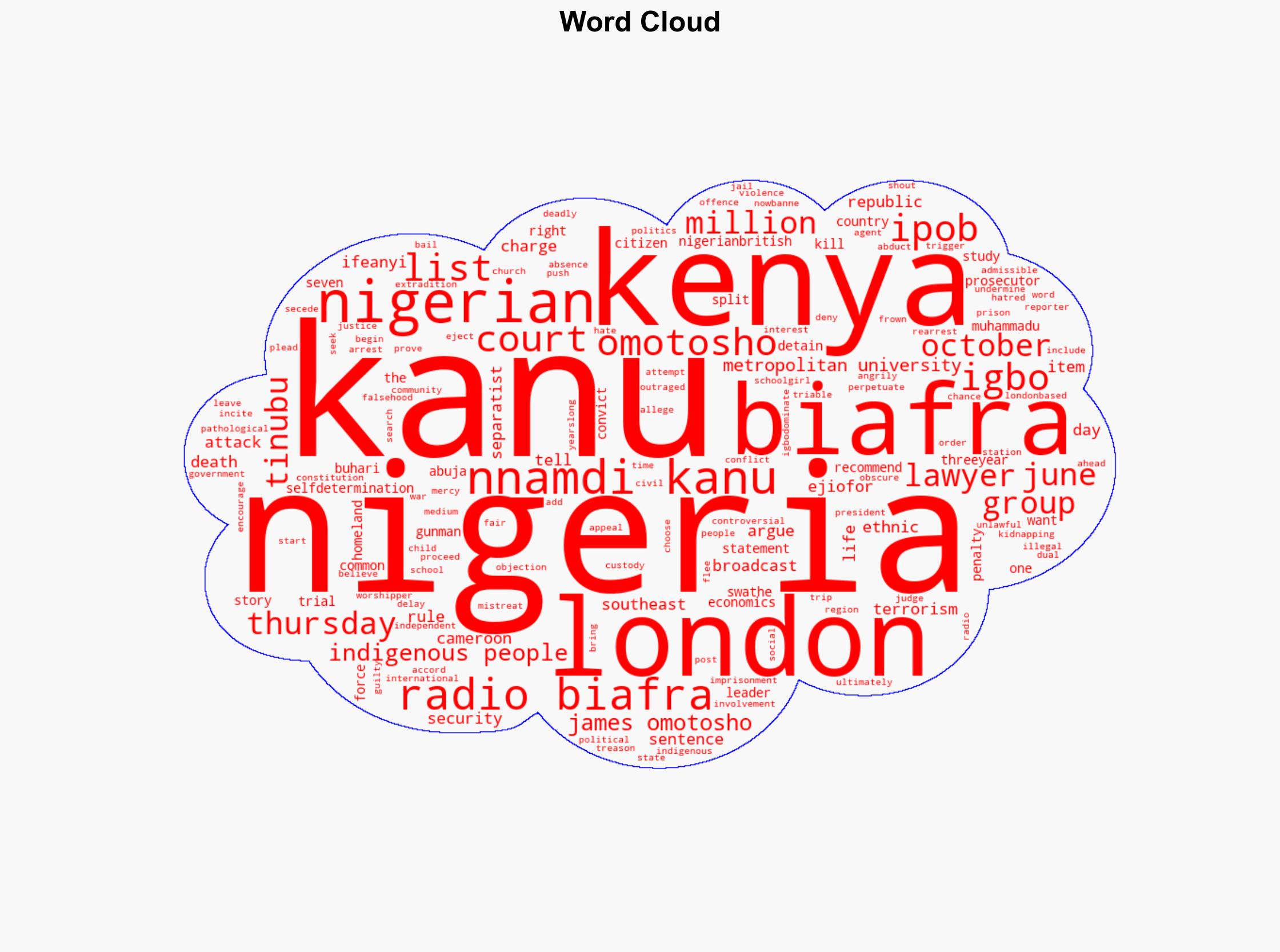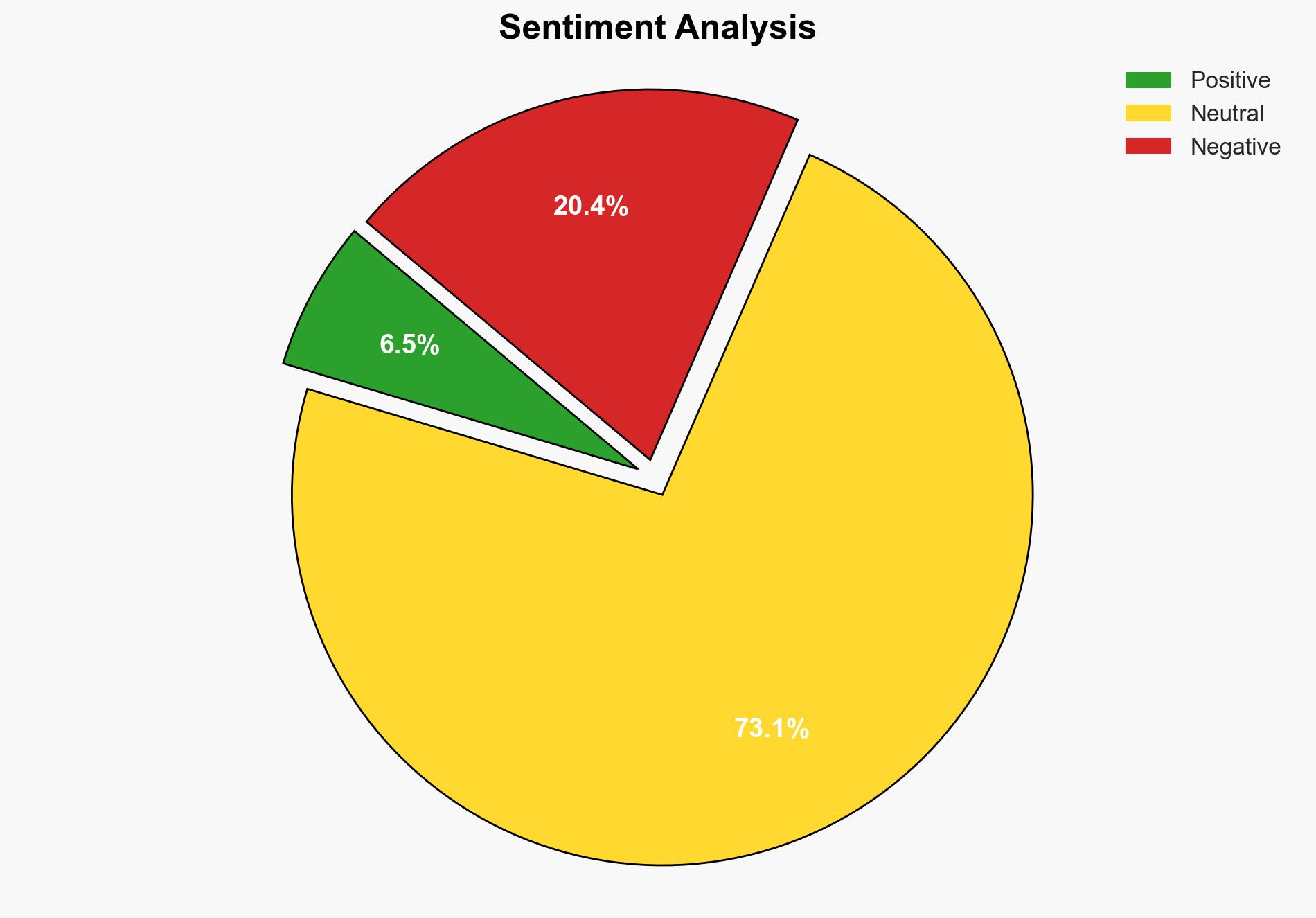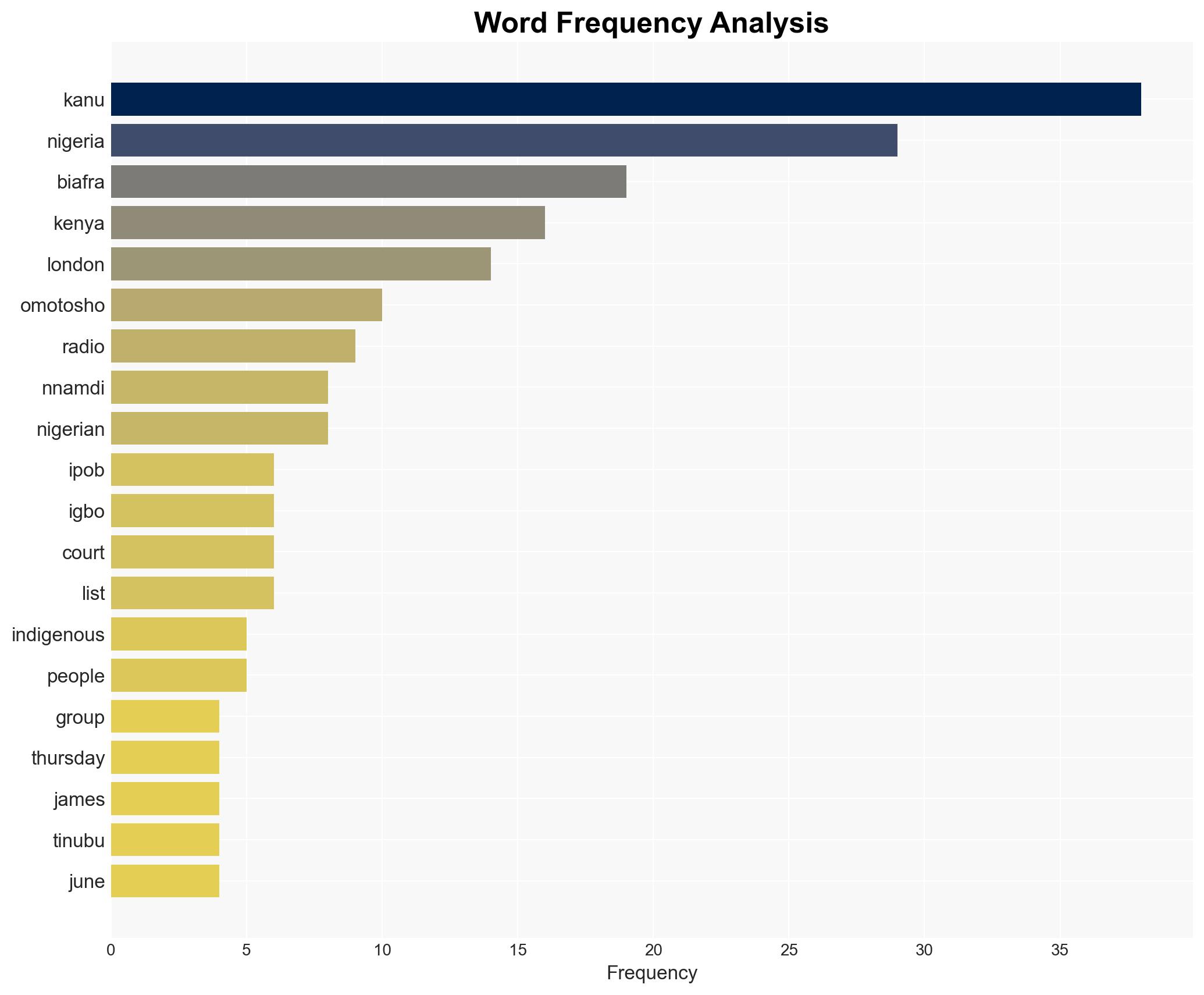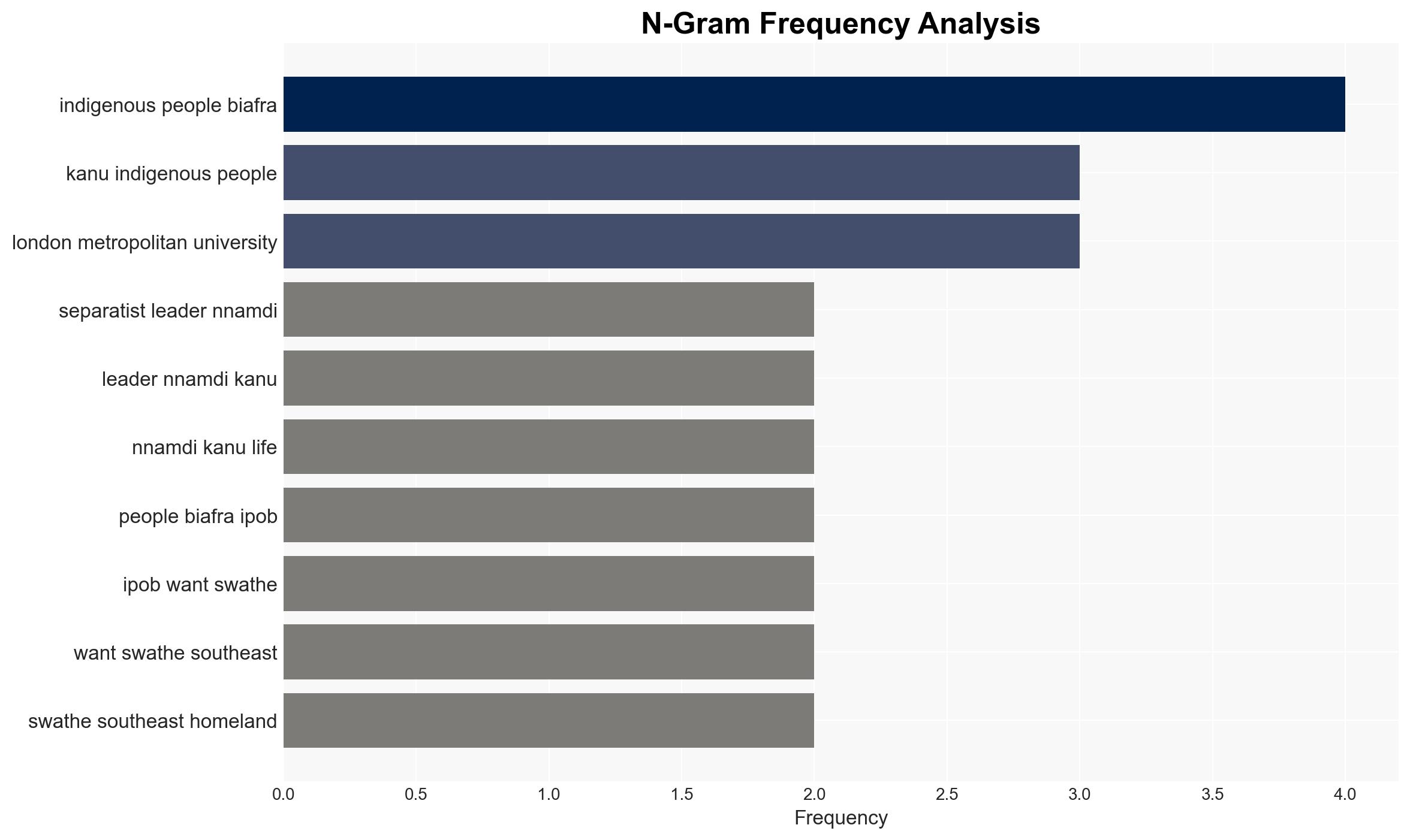Nigeria convicts separatist leader Nnamdi Kanu on terrorism charges – Al Jazeera English
Published on: 2025-11-20
AI-powered OSINT brief from verified open sources. Automated NLP signal extraction with human verification. See our Methodology and Why WorldWideWatchers.
Intelligence Report:
1. BLUF (Bottom Line Up Front)
With a moderate confidence level, the most supported hypothesis is that the conviction of Nnamdi Kanu is likely to exacerbate tensions in southeastern Nigeria, potentially leading to increased unrest and violence. Strategic recommendations include diplomatic engagement and monitoring of regional stability indicators.
2. Competing Hypotheses
Hypothesis 1: The conviction of Nnamdi Kanu will lead to increased unrest and violence in southeastern Nigeria as supporters of the Indigenous People of Biafra (IPOB) react against the perceived injustice.
Hypothesis 2: The conviction will weaken the IPOB movement by removing its leader, leading to a decline in separatist activities and restoring stability in the region.
Hypothesis 1 is more likely due to historical patterns of unrest following similar events and the strong emotional and cultural ties of IPOB supporters to their cause. Hypothesis 2 is less supported as the movement has shown resilience and adaptability in the past.
3. Key Assumptions and Red Flags
Assumptions: It is assumed that IPOB supporters will continue to view Kanu as a martyr and rally around his cause. It is also assumed that the Nigerian government’s actions will be perceived as unjust by a significant portion of the Igbo population.
Red Flags: The potential for misinformation campaigns and propaganda by both IPOB and government entities could skew public perception and escalate tensions.
4. Implications and Strategic Risks
The conviction could lead to a cycle of violence, with IPOB supporters engaging in protests and attacks, prompting a heavy-handed response from security forces. This could destabilize the region further, affecting economic activities and potentially spilling over into neighboring areas. There is also a risk of international criticism and pressure on Nigeria regarding human rights and fair trial standards.
5. Recommendations and Outlook
- Engage in diplomatic dialogue with regional leaders and international partners to de-escalate tensions.
- Monitor social media and communication channels for signs of mobilization and misinformation.
- Best-case scenario: Peaceful resolution through dialogue and legal recourse.
- Worst-case scenario: Escalation into widespread violence and regional instability.
- Most-likely scenario: Periodic unrest and violence, with ongoing tensions in the region.
6. Key Individuals and Entities
Nnamdi Kanu, James Omotosho, Muhammadu Buhari, Ifeanyi Ejiofor
7. Thematic Tags
Structured Analytic Techniques Applied
- Cognitive Bias Stress Test: Expose and correct potential biases in assessments through red-teaming and structured challenge.
- Bayesian Scenario Modeling: Use probabilistic forecasting for conflict trajectories or escalation likelihood.
- Network Influence Mapping: Map relationships between state and non-state actors for impact estimation.
Explore more:
National Security Threats Briefs ·
Daily Summary ·
Support us





